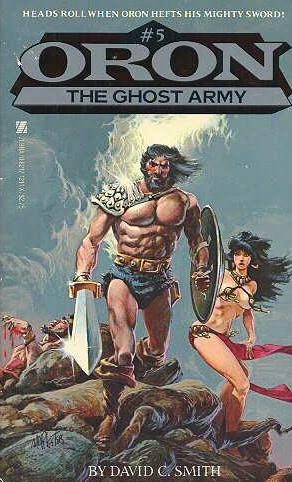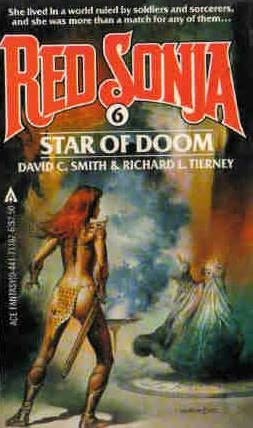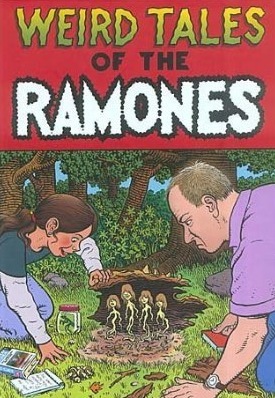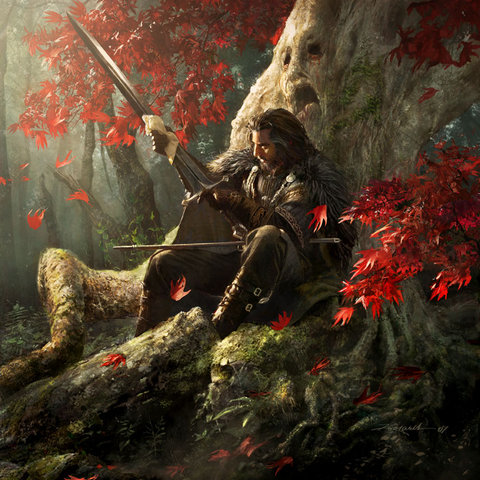Three Wise Men Bearing Gifts; No Myrrh, Just Frank Sense
Saturday, August 23, 2008
posted by Steve Tompkins
 Print This Post
Print This Post
With due deference to Scott Smith, David C. Smith is far and away the best Smith to happen to genre fiction since Clark Ashton. His heroic fantasy of the late Seventies and early Eighties was distinguished by a bleak clarity of vision about human beings and the openings our nature creates for pre-human or trans-human Evil. The resulting stories, novellas, and novels were operatic without Bayreuthian kitsch, informed by the Athenian tragedians, the Jacobean revengers, and Smith’s passion for the eternal severities of the most case-hardened pulp fiction.
With his friend sometime sword-and-sorcery writer Joe Bonadonna and Jake Jaquet, the former editor of Dragon magazine, David has symposed up a storm about the state of the subgenre we all spend so much time worrying about, and the resulting conversation, with the trio seated at a table stacked with pulps and paperbacks, is available in six parts at YouTube:
While a few technical hiccups interfered with my enjoyment of Part Three, I strongly recommend the whole set of videos. Among the questions asked: Is sword-and-sorcery at times guilty of being dialogue-and-characterization-deficient? Why didn’t John Jakes attempt a Brak novel with the scope and depth of his North and South? Does too much world-building risk burying one’s characters underneath the construction site? Can the subgenre be accused of dead-endedness and overspecificity? How can scholars and historians of What Has Gone Before do their part?
David makes the interesting point that REH is sitting pretty these days, or at least prettier than much of the subsequent sword-and-sorcery that has sought to honor the Howardian legacy. He pays his respects to Don Herron’s “Hard-Boiled Heroic Fantasist” but begins to make his own case for sword-and-sorcery as “boots-on-the-ground Western material” for which the frontier is always a key concept. His sagebrush inclinations are also apparent when he describes the Red Sonja of the novels he co-wrote with TC contributor Richard L. Tierney as a “lone gunslinger” acting on the basis of “a woman’s gotta do what a woman’s gotta do.”
Jaquet provides what we might call a Gygaxian perspective, and Bonadonna really gets on a roll: he insists (and as we know it can’t be said often enough) that Conan is “extremely subtle” and “very intelligent,” he shared the Waist-Deep in the Big Muddy experience of so many readers with The Wheel of Time, he dreams of a future where a single-volume edition of all the Kothar novels is stocked by Barnes & Noble and/or Borders, and appreciates The Lord of the Rings for being readable within the span of two days. Best of all, he identifies the Ramones as “the sword-and-sorcery of rock-‘n-roll”:
Guy Gavriel Kay and George R. R. Martin get the praise they richly deserve, although the latter is warned that even readers who have been well and truly hooked are un-fans of being cast as Vladimir and Estragon in a meta-production of Waiting for the Next Book.
I do have one gripe, essentially the same one that led me to write my first letter to TC‘s Lion’s Den after Darrell Schweitzer shared his thoughts on the over-and-done-ness of sword-and-sorcery. Twice, in Part Four and Part Six, Mr. Jaquet wonders if the subgenre is commercially viable: “I suspect the answer is a qualified no.” But no one works David Gemmell into the discussion. Over thirty novels, most of them instamatic U. K./Australia bestsellers of the sort that induce publishers to cough up Croesan advances, good-if-not-great American sales and a persistent presence in bookstores –it would be one thing to position Gemmell as the exception that proves the rule, it’s another to fail to position him at all…
Still, people talking about sword-and-sorcery is almost as welcome as people writing sword-and-sorcery, so well done.




